Benedict Cumberbatch’s portrayal of the tragic genius Alan Turing in the new film The Imitation Game almost did not happen. But as it turns out, the withdrawal of Leonardo di Caprio was a piece of serendipity worthy of Turing’s 1936 discovery of the incomputable.
In the film, which opens the BFI London film festival on Wednesday and is already being mentioned as an Oscar contender, we see Cumberbatch deeply inhabited by Turing’s story, encompassing all his brilliant insight, struggle and 1954 suicide.
Interviewed by Glenn Sumi for Cumberbatchweb, the actor said: “Often, as an actor, you draw on your own experience or memories, but I really didn’t have to here. [Turing] got under my skin. It was just so pitiful. Imagining the physical weakness, the vulnerability, the exhaustion, how the hormones affected his emotional state … It was all ungovernable.”
Of course, there is no limit to what we owe Alan Turing. His work laid the foundations of today’s computer age, and his life story moves and inspires us. Though when I arrived at Manchester University as a young researcher in 1968, there was little sign of his ever having lived and worked - and died - there. And that took a long time to change.
His ‘celebrated imitation’ game paper, which jump-started the new realm of artificial intelligence (though Turing termed it ‘mechanical intelligence’) came out in 1950. But within four years one of our greatest scientists had died alone, his ashes scattered near Woking crematorium. There is no gravestone.
In 1999 the BBC reported that an appeal to raise funds for a statue to Turing had failed to receive the backing of a single computer company. The sculptor Glynn Hughes was reported as saying he found it hard to explain why computer firms had not contributed “a single penny” to the £55,000 needed to honour their industry’s founder. Now of course Glynn’s sculpture sits in Sackville Gardens in the gay district of south Manchester, and famous round the world. And the likes of Google and the Weinstein Company are central to Turing’s rediscovery.
In 2003 I founded a geeky academic network called Computability in Europe (CiE), based on Alan Turing’s scientific legacy, and attempted – unsuccessfully – to get EU funding. In 2007, I first suggested to the CiE board the idea of an ‘Alan Turing Year’, timed for the 2012 centenary of Alan’s birth. They thought the suggestion a little early, I think, but the enthusiasm was hard to resist. Within four years I was chairing a dauntingly distinguished and diverse Turing Centenary Advisory Committee’ (TCAC) with Sir Dermot Turing as honorary president, and a website bulging with information on the burgeoning ATY 2012.
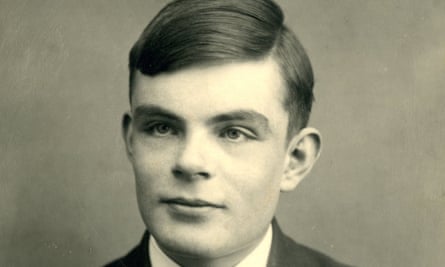
And how things have changed! Events – the scale of which were not envisaged by anyone – formed a true phase-transition. Happenings which took us from ‘Alan Who’ (ATY media contact Daniela Derbyshire is compiling a list of ‘Alan Who’ stories), to this week’s BFI London Film Festival (Oct 8 to 19) ‘Cumber-Coding’ extravaganza. It’s been an Alan Turing renaissance no less, with Manchester alumnus Benedict Cumberbatch gracing the movie with an uncanny level of ‘Alan empathy’ and an overwhelming commitment to the character.
The beauty of it all emerged on many levels, and was carried forward by many people for whom Alan has a very special message. It was the notion of the Imitation Game, repackaged as the ‘Turing Test’ for machine intelligence, which conceptually held the key to all of Turing’s work. And for popular understanding, the synergetic display of thoughtfulness and passion people brought was a key ingredient. There is a lovely story, of the film-makers bringing in experts to explain the science - as well as they could - to Keira Knightley and Benedict Cumberbatch (who studied at Manchester University, I might add) and the other brave actors.
Over 2012 we observed a true paradigm shift. One moment we were told by government ministers that a pardon for the great scientist’s ‘crime’ of being gay - a removal of the stain of the 1952 conviction - was out of the question, without precedent. We did not give up, ATY supporters tirelessly promoting the petition for a pardon. Then, on Christmas Eve 2013, minister Chris Grayling (effectively nudged by John Sharkey’s House of Lords bill, and the support of Baroness Trumpington) announced the Royal Pardon was to be granted!
But that was post-Alan Turing Year, and what an amazing year that was. Over 40 countries made major contributions to the celebrations of Alan’s life and work. Huge (by familiar geekish standards) meetings - over 700 at the ACM Turing Award event in San Francisco; and 500 plus for an unprecedented two-day commemoration at Princeton University; and large Turing Centenary Conferences in Cambridge and Manchester - with no less than world chess icon Garry Kasparov, his usual fee waived, at the Manchester City Hall event, while the Olympic torch arrived in the square outside.
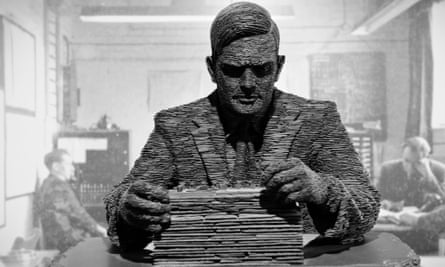
I have particularly fond memories of events coming out of the artistic and gay communities, and of brilliant events at Bletchley Park involving historic figures like Captain Jerry Roberts, William Newman, Dermot Turing, and other members of the Turing family. I’m afraid we need a book to do justice to this extraordinary period. The serious side for many of us is the effect of the ATY on the scientific legacy.
The Imitation Game movie is hugely important to this, with its cornucopia of UK and international talent, uniquely engaged with the person that was Turing, bringing the life and legacy to a whole new audience. Hopefully people leaving the cinema, moved and informed, will be inspired to read Andrew Hodges’ brilliant “Alan Turing - The Enigma”, or even take on the science via, say, my own 2014 Prose Awards winner “Alan Turing - His Work and Impact” – certainly the biggest and most beautifully produced Turing book post-2012.
We’re not finished with Alan Turing Years yet. There are now over 16K Twitter followers for @AlanTuringYear, doing their daily bit to spread news of latest ATY events. Will the new movie attract further recognition to Alan’s legacy via the 2015 awards season? Who knows. There is certainly Oscar buzz for Benedict’s powerful and poignant performance. As Turing explained to us, and found to his distress in 1952, the world is not totally computable. And to what extent will the £42m government funding for a ‘Turing Institute’ benefit Manchester and the North?
Professor S Barry Cooper is a mathematician at the University of Leeds. He can be followed on Twitter at @SBarryCooper and Alan Turing Year at @AlanTuringYear. Professor Cooper’s book, “Alan Turing: His Work and Impact” is published by Elsevier
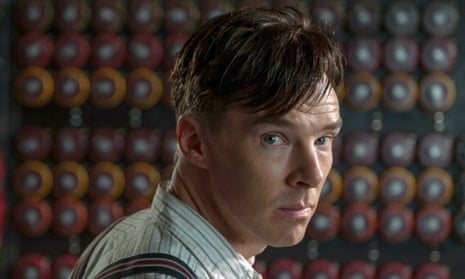
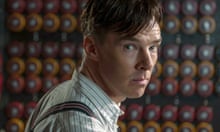



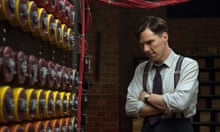
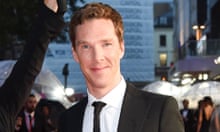




Comments (…)
Sign in or create your Guardian account to join the discussion